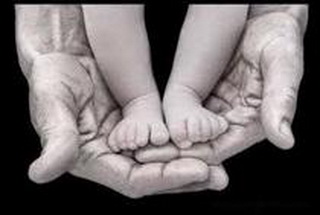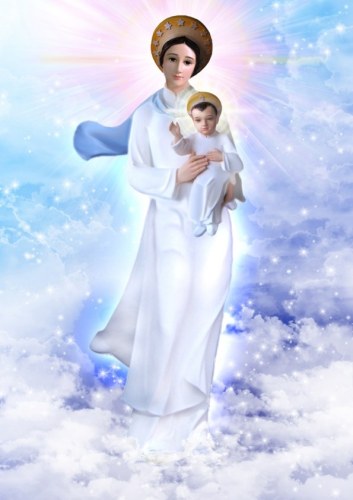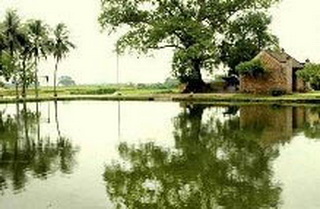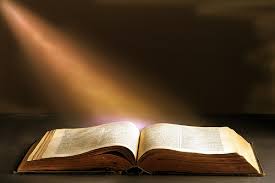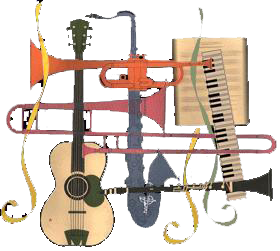The Mercury Balance Syndrome
The Tale: The mercury Balance (Cái Cân Thủy Ngân)
Once upon a time there were a couple of goldsmiths who ran their jewelry shop in a large Vietnamese town. The prices of their goods were based on their weights and they used a scale that was made of a beam hang from a cord off its center, with a counterweight sliding on the beam on one side and the pan holding the merchandise on the other side. The couple became rich very quickly because they had a trade secret; the beam of their scale was hollow, and it was loaded with mercury. When they sold some thing, they would tilt the rod toward the plate and the weight of the mercury would add to the weight of gold. When they bought a jewel from a client, they would tilt their scale to the side of the weight, therefore got a lesser reading to their advantage.
After a few years, they were able to save a large amount of money and buy a very large house, loaded with all the luxuries. It seemed as if the gods were answering to their every prayer. They also got two handsome, healthy and intelligent sons who were the envy of every family in the city.
Fifteen years later, one evening after a very busy and profitable day at their large store, the husband had a few moments for himself and started thinking about his life. Now that every dream in his life had come true, he thought of repentance about his trade secret. He talked to his wife and both of them agreed that it was time for them to destroy the scale, spend some of their money in charity and attend religious services at the pagoda to redeem their sins.
This decision changed their life in a very profound way: they were more respected and liked by their community. They slept more peacefully and learned to enjoy simple things of life, and though their fortune had dwindled significantly because of their charitable works, their life had become much richer. Most of all, they were proud of their two sons who were so handsome and so successful in their studies.
Then suddenly, one morning, the two sons were stricken with a tragic illness and died on the same day. Their parents were devastated and complained about the perceived injustice from Heaven. Had they not spent most of their unjustly acquired wealth on charity works and faithfully attended ceremonies at the temple? Why didn’t punishment fall on them instead of their beloved children? Didn’t Heaven have any pity for them?
Then one night, in a dream, they saw Buddha come to them. He explained to them that their two sons were actually two demons that Heaven had sent to earth, in their household to punish them of their sins. He said: “If your sons were allowed to grow up, they would waste all your fortune, bring you the most unimaginable misery to your old age and would be the worst calamity your family and community ever had. Because you have repented, Heaven is touched by your faithfulness and therefore has recalled the instruments of their wrath. Don’t mourn them any further. Keep doing your good works and you will find enlightenment.”
The couple obeyed, converted their large mansion into a pagoda serving the community. They spent the rest of their life helping people in need and finding peace in prayers and contemplation.
Discussion:
The above story of the mercury balance reflects many fundamental aspects of the Vietnamese mind:
1) Honesty and honor are always valued over material wealth and even preservation of one’s life. We like to say:
-“ To die with honor is better than to live in shame”
-“The stork went to feed at night,
Perched on a weak branch and fell into the pond
Please, Sir, pick me up, if I betray you, cook me with bamboo shoot.
Should you cook me, please use limpid water,
Don’t use muddy water, lest it causes my children deep grief”
2) There is “some one up there” who knows what we are doing, even our most secret actions. In the story of an honest mandarin who refuses bribe from a wealthy man, the latter told him:” Sir, there are only the two of us, nobody knows about this”. The mandarin replies: “Heaven knows, Earth knows, you know, I know; why do you say that nobody knows about this?”
That notion of a Heaven (Trời) that sees everything you do is similar to “the Eye” that Cain constantly sees after he killed his brother: “Et cet Oeil qui me regarde encore “ (Alfred de Vigny).
This so called “superego” representing the conscience, and as explained by psychoanalytic theory, “formed in early life by internalization of the standards of parents and other models of behavior”. Most likely, for a traditional Vietnamese child that moral and religious background would include the three religions: Confucianism, Taoism and Buddhism. Confucianism stresses the sense of honor worthy of a gentleman, Taoism confers a certain disdain of material wealth and worldly privileges and Buddhism teaches compassion for each other, the law of cause and effect (karma) and the impermanence of life where every thing changes. This conscience is obviously cultivated also in Christians through such processes as confession or the mea culpa prayer, also known as the Confiteor where ones recognizes one’s sins and flaws. However, Christianity has rather more recent influence in Vietnam, dating back only a couple of centuries in its more than two thousand years of history. Besides, it seems that certain Christian teachings, particularly compassion and charity, might have been influenced or derived from Buddhism which predated it by a few centuries in India, not too far from Christ’s birth place.
3) Talking about Buddhism teaching of the law of karma or cause and effect, we are not the only one bearing the consequences of our deeds. It can be transmitted through generations. In the legend of Nguyễn Trãi and Thị Lộ, the revenge taken by the snake took the form of the annihilation by execution of three generations (and three sides) of Nguyễn Trải ‘s extended family. We Vietnamese say: “When father eats salty, his children have to drink”. Our children inherit not only the estate that we leave them; they inherit the consequences of our good and bad actions. Therefore, very often, repentance and enlightenment start on the occasion of the birth of one or several children. At that moment, we feel the miracle of life, the continuum of our existence through the generations, and therefore our urge to leave them something lasting and worthwhile. We may also become more aware of our own mortality and may consider putting our priorities in a different perspective. The unusual twist of this [parents –children] [cause –effect] connection in this story of the Mercury Balance is that the children may be instruments used by Buddha (or Heaven or God) to punish us for our misdeeds. In that perspective, the birth of a certain child is not necessarily a good thing for his/her family and his/her eventual demise sometimes is considered a sign that the punishing Heaven has relented. This perspective may be thought as a cynical effort at rationalization to console oneself of a painful loss, though at the price of unjustly demonizing the deceased.
4) Contrary to the biblical story of Job, who had to accept “good as well as evil” from God, the punishment by Heaven is in this story of the Mercury Balance justified. Man is not at the mercy of a whimsical god who tries to test his faith and should not blame heaven for his sufferings.
5) After all, the essence of the story is also found in the stories of many illustrious families of America. “Robber barons “ made huge fortunes through legal but unscrupulous deals or maneuvers (by undetected fraud or by legal “exploitation of the working class”), then, often with the help of a cataclysmic and catalytic life event, comes awareness of social responsibility and of the futility of one’s material wealth, followed by dispensing of one’s wealth into something more meaningful (philanthropy and religious activities).
What does this “syndrome” mean?
The answer depends on who we are, how much cynicism we carry in our soul, whether we believe in “random kindness” just for the sake of being good as it is now trendy with modern secular humanism (which in turn may be rooted in Judeo-Christian tradition), or whether we believe in a Supreme Being who sooner or later will judge us for what we are or what we do. Fortunately, at the end, the cursed miser often becomes the philanthropist and society only benefits from what we may call “The Mercury Balance Syndrome”.
Hien V Ho, MD (11-15-2007; edited for langhue.org 9-8-2013)

